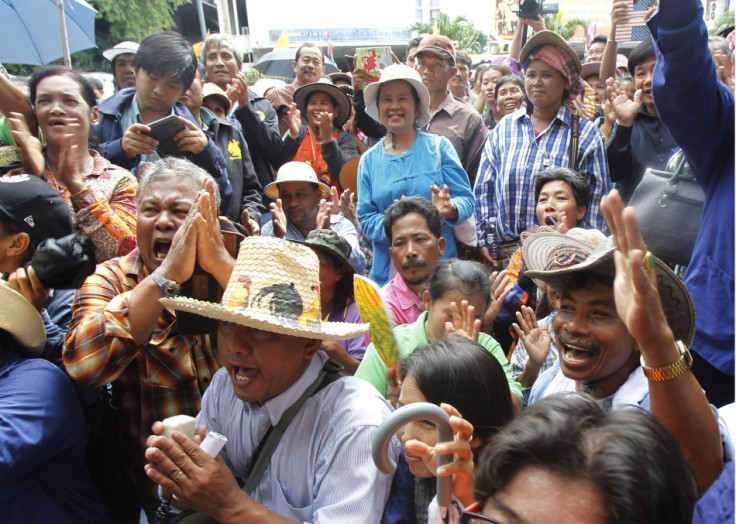Thailand's Rice Scheme Backlash Worsens as Farmers Press for Payments

Thai farmers have threatened to block roads in 26 provinces if the government fails to pay money due to them as part of a controversial rice-buying scheme.
Prasit Boonchoey, president of Thai Rice Farmers Association, said farmers will block roads in northern provinces to add pressure on the government to make payments for the rice it bought above the market rates.
Earlier this week farmers in a northern province blockaded two highways, angered by a two-month delay in payments, but dispersed after the local government promised to speed up payment.
Thai farmers are seemingly running out of patience, threatening to regroup and block the highways again as they are disenchanted with a government scheme that had promised them better prices for the yield.
"We won't stop. We are gathering and we will stage protests by this week as we haven't got our money," Wichian Phuanglamchiak, a farmers' leader in Ayutthaya province to the north of Bangkok, told Reuters.
Agriculture employs about two-fifths of the Thai population, with most of them engaged in rice cultivation.
In 2011, Prime Minister Yingluck Shinawatra won elections in landslide after promising farmers to buy rice at above-market prices to boost rural incomes.
The high rice prices rendered Thai rice uncompetitive in the international market as millions of tonnes of unsold rice accumulated in storehouses.
Thai policymakers had thought that they would be able to raise global prices by stockpiling, but exporters from India and Vietnam filled in the gap and replaced Thailand as a major exporter of rice.
According to the UN's Food and Agriculture Department, the government had over 18 million tonnes of rice in warehouses in 2012.
The government acknowledged that it had lost 136 billion baht (₤2.67 billion) in the first two phases of the programme between 2011 and September 2012.
In June, the government proposed to reduce the rice subsidy by 20% to steer a way out of the loss-making scheme, but came under fire from rice farmers who did not appreciate any cut in the welfare largesse.
The Bank of Agriculture and Agricultural Cooperatives (BAAC) resorted to buying bonds in November to pay farmers but could raise only 37bn baht (₤702m), falling short of the target.
Prasit said the commerce ministry needs to do more than merely complain about the lack of funds. He added that the ministry's response was contrary to the cabinet ministers' assurances that the government can afford the rice-buying scheme.
Yingluck has dissolved the parliament and called for early elections in the face of anti-government protests that lasted several weeks.
© Copyright IBTimes 2025. All rights reserved.





















